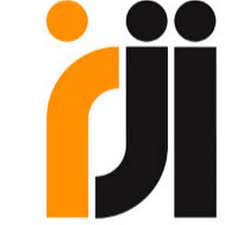PENGEMBANGAN LEMBAR KEGIATAN SISWA DENGAN PENDEKATAN SAINTIFIK PADA MATERI TURUNAN SMA
Abstract
This study aims to produce student activity sheets with a scientific approach to high school derivative materials and to determine the quality of student activity sheets from the aspects of validity, practicality, and effectiveness. This type of research is development research. The development model used is the ADDIE development model which consists of analysis, design, development, implementation, and evaluation. The instrument used in this study was the Student Activity Sheet assessment sheet to measure the validity, the response questionnaire to the use of learning devices to measure practicality, and the learning outcome test questions to measure effectiveness. The results showed that the Student Activity Sheet developed was valid because the results of the assessment met the minimum classification "Good". Assessment of Student Activity Sheet gets an average score of 4.1 with the classification "Very Good". Based on the results of data analysis of teacher response questionnaires and student response questionnaires, the Student Activity Sheet is said to be practical because it meets the minimum classification "Good". The results of the teacher's questionnaire response to the use of the Student Activity Sheet got an average score of 3.25 with the classification "Good" and the student response questionnaire to the use of the Student Activity Sheet got an average score of 3.2 with the classification "good". Student Activity Sheets are said to be effective because the percentage of students' classical completeness reaches 84.62%.
References
Anggrella, dkk. (2020). “Pengembangan Modul Sistem Peredaran Darah Berbasis Inkuiri Berdasarkan Hasil Penelitian Diabetes Mellitus Tipe 2”. LECTURA. Vol. 11 (2), pp: 167-180.
Azizah, L.I.R., Sugiyanti, S., Happy, N. (2019). “Efektivitas Model Pembelajaran Problem-Based Learning (PBL) dan Guided Inquiry terhadap Kemampuan Berpikir Kritis Matematis Siswa”. Imajiner: Jurnal Matematika Dan Pendidikan Matematika. Vol. 1 (4), pp: 30-26.
Azwar, Saifuddin. (2010). Reliabilitas dan Validitas. Yogyakarta: Pustaka Pelajar.
Chin, Erh-Tsung., Lin, Fou-Lai. (2013). “A Survey Of The Practice Of A Large-Scale Implementation Of Inquiry-Based Mathematics Teaching: From Taiwan’s Perspective”. ZDM Mathematics Education. Vol 45, pp: 919-923.
Depdiknas. (2008). Panduan Pengembangan Materi Pembelajaran dan Standar Sarana dan Prasarana. Jakarta: BP. Mitra Usaha Indonesia.
Ferguson, K. (2010). Inquiry Based Mathematics Instruction Versus Traditional Mathematics Instruction: The Effect on Student Understanding and Comprehension in an Eighth Grade Pre-Algebra Classroom. Master of Education Research Theses. [Online] Tersedia: https://digitalcommons.cedarville.edu/education_theses/26
Fielding-Wells, J. & Makar, K. (2012). Developing Primary Students' Argumentation Skills in Inquiry-Based Mathematics Classrooms. In van Aalst, J., Thompson, K., Jacobson, M. J., & Reimann, P. (Eds.), The Future of Learning: Proceedings of the 10th International Conference of the Learning Sciences (ICLS 2012) – Volume 2, Short Papers, Symposia, and Abstracts (pp. 149-153). Sydney, NSW, AUSTRALIA: International Society of the Learning Sciences
Firmansyah, D. (2015). “Pengaruh Strategi Pembelajran Dan Minat Belajar Terhadap Hasil Belajar Matematika”. JUDIKA: Jurnal Pendidikan UNSIKA. Vol. 3 (1), pp: 34-44.
Mulyatiningsih, Endang. (2011). Riset Terapan. Yogyakarta: UNY Press.
Nursyarifah, R., Rochman, C., Nasrudin, D., Yuningsih, E.K., Abdul. (2018). “Efektivitas Proses Pembelajaran Fisika Menggunakan Pendekatan Saintifik”. Jurnal Wahana Pendidikan Fisika. Vol. 3 (2), pp:13-28.
Peraturan Menteri Pendidikan dan Kebudayaan Republik Indonesia Nomor 103 Tahun 2014 tentang Pembelajaran pada Pendidikan Dasar dan Pendidikan Menengah.
Putri, K. E. (2020). “Meta Analisis: Pendekatan Saintifik Terhadap Hasil Belajar Siswa”. Jurnal Pendidikan Dasar Nusantara. Vol. 6 (1), pp: 127-135.
Rahmantiwi, W.B & Rosnawati, r. (2018). “The Effect of Problem Based Learning (PBL) Toward Mathematics Communication Ability and Curiosity”. Journal of Physics: Conference Series 1097. doi :10.1088/1742-6596/1097/1/012124
Rini E.S. (2016). “Pemahaman Konsep Dan Motivasi Belajar Matematika Siswa Kelas X Madrasah Aliyah Negeri 1 Palu Melalui Model Pembelajaran Berbasis Masalah Dan Model Pembelajaran Inkuiri”. e-Jurnal Mitra Sains. Vol. 4 (2), pp: 20-29.
Spencer dan Walker. (2012). “Creating a Love for Science for Elementary Student through Inquiry-Based Learning”. Journal of Virginia Science Education. Vol. 4 (2), pp: 18-25.
Trandililing, E. (2015). Effectivity Of Problem Based Learning (PBL) In Improving Students' Mathematical Representation. Proceeding of International Conference On Research, Implementation And Education Of Mathematics And Sciences 2015, Yogyakarta State University, 17-19 May 2015, 147-152.
Widoyoko, Eko Putro. (2009). Evaluasi Program Pembelajaran. Yogyakarta: Pustaka Pelajar.





